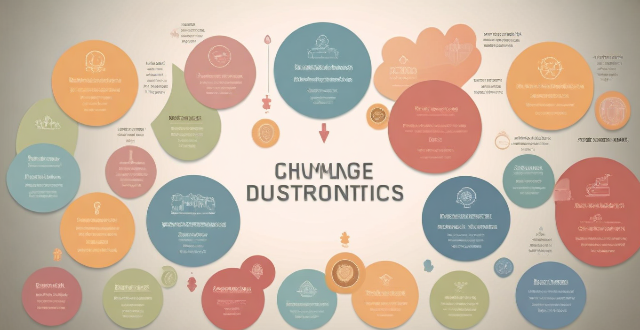Climate change negotiations address the issue of climate justice by recognizing the disproportionate impacts on vulnerable populations, promoting equitable access to resources and technologies, adhering to the principle of common but differentiated responsibilities, ensuring inclusivity in negotiation processes, addressing loss and damage, promoting sustainable development, setting long-term goals and ambitions, and maintaining accountability. These efforts aim to create a more equitable and resilient global response to the challenges posed by climate change.

How Do Climate Change Negotiations Tackle the Issue of Climate Justice?
Climate justice is a crucial aspect of climate change negotiations, as it addresses the fairness and equity in the distribution of benefits and burdens associated with climate change mitigation and adaptation. Here's how these negotiations typically approach the issue:
1. Recognition of Vulnerabilities
Key Points:
- Acknowledgment of Different Impacts: Negotiations recognize that climate change affects different countries and communities in various ways, often disproportionately impacting developing nations and marginalized groups.
- Focus on Most Vulnerable Populations: There is an emphasis on protecting those who are most at risk, such as island nations, coastal communities, and low-lying areas.
2. Equitable Access to Resources and Technologies
Key Points:
- Technology Transfer: Providing access to clean energy technologies and climate adaptation strategies to countries that lack the resources to develop them independently.
- Financial Support: Allocating funds from developed countries to assist developing nations in their efforts to combat climate change.
3. Adherence to the Principle of Common but Differentiated Responsibilities
Key Points:
- Historical Emissions: Acknowledging that developed countries have contributed more to historical greenhouse gas emissions and should therefore take on greater responsibility for action.
- Capacity to Act: Taking into account the varying capacities of countries to implement climate policies based on their levels of development.
4. Inclusivity in Negotiation Processes
Key Points:
- Active Participation: Ensuring that all parties, especially those from affected communities, have a seat at the table during discussions and decision-making processes.
- Transparency: Keeping negotiations open and transparent to foster trust among participating nations.
5. Addressing Loss and Damage
Key Points:
- Compensation Mechanisms: Establishing systems to provide compensation for irreversible losses and damages caused by climate change, particularly for small island developing states and least developed countries.
- Mitigation and Adaptation: Linking loss and damage discussions to broader mitigation and adaptation strategies to create comprehensive solutions.
6. Promoting Sustainable Development
Key Points:
- Integrated Approach: Aligning climate actions with sustainable development goals to ensure that efforts to combat climate change also contribute to broader socioeconomic progress.
- Just Transition: Supporting industries and workers in transitioning to a low-carbon economy without compromising their livelihoods or well-being.
7. Long-term Goals and Ambition
Key Points:
- Paris Agreement: Building upon the framework set by the Paris Agreement, which includes provisions for enhanced transparency and global stocktake to track progress toward climate goals.
- Future Commitments: Encouraging countries to submit more ambitious targets over time as part of their Nationally Determined Contributions (NDCs).
8. Ensuring Accountability
Key Points:
- Regular Assessments: Conducting regular assessments of climate action performance to ensure that countries are meeting their commitments.
- Non-Compliance Mechanisms: Developing mechanisms to address non-compliance with agreed-upon terms in a fair and constructive manner.
In conclusion, climate change negotiations strive to incorporate principles of climate justice by considering the diverse impacts on different regions and populations, promoting equitable resource sharing, upholding the principle of common but differentiated responsibilities, ensuring inclusivity, addressing loss and damage, promoting sustainable development, setting long-term goals, and maintaining accountability. These efforts aim to create a more equitable and resilient global response to the challenges posed by climate change.